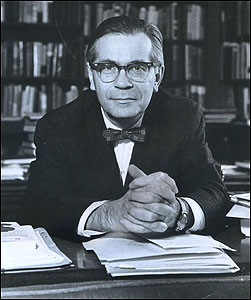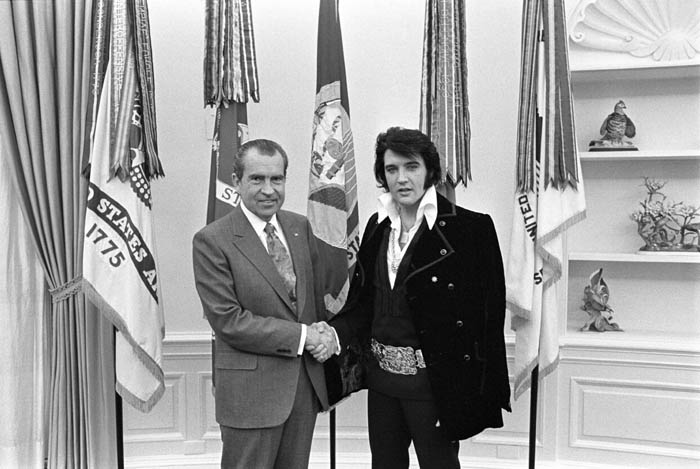Aww yeah.... Grandpa's Old Cough Syrup is back in style. Now we just need a story in the Globe about Lawndarts being the hot toy for Christmas and this blog will be cooler then Miles Davis.
Bourbon’s Shot at the Big Time
By ERIC ASIMOV
In the recent history of whiskey, bourbon would seem to have had a lot going for it. It’s homegrown, for one thing. Grass-roots acceptance counts for a lot when you are battling for shelf space. Bourbon has always been right up there with college football, Nascar and canned beer — the sort of whiskey that anyone can order without fear of being labeled effete or snobbish.
Yet, awareness is not always enough in the whiskey business. The days are long gone when “Dallas” ruled the airwaves and J. R. Ewing made bourbon and branch a household term. When bourbon distillers looked up 20 years ago they saw the market moving in two directions, both away from them. Affluent drinkers were exploring the wonders and complexities of single malts while younger bar-goers were turning to vodka and rum.
The dive in sales forced bourbon producers to accept that the whiskey market had changed. They might not be able to compete with vodka, but to avoid permanent relegation to the dusty back shelves of liquor stores, bourbon producers would have to find a way to attract the budding connoisseur class.
Enter the small batch, the single barrel and the special selection, marketing terms for what the industry calls high-end and superpremium bourbons. These whiskeys are chosen to emphasize complexity and even elegance, a quality that has rarely been associated with bourbon and a word that no doubt panics bourbon marketers who still favor the rural look of bib overalls, boots and gimme hats (that effete snob thing).
If you love whiskey but haven’t thought of bourbon as being in the same league as a good Scotch, Irish and even, these days, rye, you owe it to yourself to give it another try. A well-made, well-aged bourbon offers a gorgeous spectrum of flavors, beginning with a distinctive sweetness that can, depending on the distiller’s aim, turn spicy and peppery with clear fruitiness, or mellow into a creamy caramel toffee with highlights of citrus.
Confidence bred of success has led distillers to pay more attention to their best whiskeys. Meanwhile, microdistilleries all over the United States are getting into the act. While they have not yet made their presence felt on a national scale — whiskey takes a lot of time — it’s easy to anticipate their eventually making a mark.
Clearly, the producers’ efforts to improve quality, coinciding with the rebirth of the cocktail culture, have been a big success. The resurgence in spirit sales in the United States has been led by the high-end brands, said David Ozgo, chief economist for the Distilled Spirits Council of the United States, a trade group, and that is especially true of bourbon.
From 2002 to 2006, sales of bourbon and Tennessee whiskey rose by 12.23 percent. In the same period, sales of high-end whiskeys ($20 to $30) rose by 27.62 percent and sales of superpremium bourbons (above $30) rose by 60.52 percent.
Sales are one thing. The Dining section’s tasting panel recently evaluated 25 bourbons strictly to answer another question: How good are these whiskeys, anyway? The short answer is, very good. For the tasting, Florence Fabricant and I were joined by Pete Wells, editor of the Dining section, who has written extensively about drinks, and Ethan R. Kelley, the spirit sommelier at the Brandy Library in TriBeCa.
To begin, let’s get our nomenclature straight. While many people believe that bourbon must come from Kentucky, it’s not true. Bourbon can be made anywhere in the United States as long as two federal conditions are met. First, the blend of grains from which the whiskey is distilled must be at least 51 percent corn. Second, the whiskey must be stored in charred new oak containers. If it is aged in the oak containers (federal regulators do not seem to like the word barrel) for two years or more it qualifies as straight bourbon whiskey.
Bourbon is not Tennessee whiskey, like Jack Daniel’s, which is essentially made like bourbon until it is filtered through charcoal, at which point it becomes Tennessee whiskey. Bourbon is also not corn whiskey, which by law cannot be stored in charred oak containers. A whiskey can be distilled 100 percent from corn, but if it so much as kisses those charred oak containers it becomes bourbon.
While these laws may seem rigid, they leave a lot of room for creative distilling. Once you’ve got your 51 percent corn in the blend of grains (which distillers call the mash bill), you’ve got important decisions to make. Most distillers probably use 65 percent to 75 percent corn, blended with some proportion of rye, wheat or malted barley, and each grain provides different characteristics. The corn offers the sweetness and lush texture that are the basis of so many bourbons. Wheat adds a mellow roundness, while rye provides a spicy, peppery fruitiness and a dry quality. Barley can add a creaminess and a grainy sweetness.
Producers must also decide how long to age their whiskeys. Younger whiskeys tend to be more aggressive and fiery. Aging tames the whiskeys, rounding off raw edges and bringing out a smooth complexity.
Younger and older whiskeys have their attractions, but with bourbon long-term aging is particularly beneficial, at least in my opinion. I loved the smoothness and the added complexity in some of the older bourbons we tasted, but the combination didn’t always sit well with Ethan.
“I don’t know if bourbon was designed to be so elegant and proper,” he lamented, though not unhappily.
We all noted the wide range of flavors in these bourbons, from creamy chocolate and fruity to grassy and herbaceous. “It was not the full frontal corn assault that once dominated bourbon,” Pete said, noting that the flavors in some bottles seemed beyond the realm of what might be acceptable in bourbon.
The bourbons we tasted ranged in price from $14 to $120, and while a $20 bottle, Jim Beam Black, was our best value, there was some correlation between price and quality.
The most expensive bourbon, the 16-year-old A. H. Hirsch Reserve, was something of an anomaly. It was among the last batches of whiskey distilled at Michter’s Distillery in Schaefferstown, Pa., which closed in 1989.
The name Michter’s lives on as a brand, but it is distilled in Kentucky (Michter’s U.S. 1 Bourbon did not make our cut). The A. H. Hirsch is a fine whiskey, smoky and complex, but the $120 is mostly for its rarity.
Naturally, the bourbon industry wants to capitalize on the cocktail craze, which is fine, but anybody who makes a mixed drink of our No. 1 bourbon, Pappy Van Winkle’s Family Reserve 20-Year-Old, needs some remedial shaking and stirring. This is clearly a sipping whiskey of wonderful complexity, which would be wasted in even the finest mint julep or bourbon punch. The same goes for our No. 2, the fruity and chocolate-and-caramel-flavored Vintage 17-Year-Old.
If mix you must, I would suggest our No. 3, the brisk, spicy Knob Creek, which tastes as if it has a rye component. It might be the perfect whiskey for one of those cocktails that seem to be at home with either rye or bourbon.
Some of the biggest names in bourbon did not make our list. Wild Turkey just missed. It was good bourbon, but the panel did not find it distinctive enough in this company. We also liked the Van Winkle’s 10-Year-Old, which we thought would be great for cocktails. Maker’s Mark did not come close.
While the rules do not require it, most bourbons do, in fact, come from Kentucky. One that does not is the Hudson Four Grain Bourbon, distilled by Tuthilltown Spirits in the Hudson Valley. We liked it very much but left it off the list because it is virtually impossible to find.
Each of us also had a favorite or two that did not make the list. Ethan liked an Elijah Craig 18-Year-Old and an Eagle Rare Single Barrel 10-Year-Old. Pete liked the Eagle and the Wild Turkey. Florence liked the Elijah Craig and the Virginia Gentleman, an old brand that has the distinction of being distilled in Kentucky then redistilled in Virginia. I very much liked a Corner Creek Reserve 8-Year-Old and Bulleit.
The strongest bourbon in the tasting was Wild Turkey, at 101 proof. The final strength of a whiskey is another choice that distillers must make.
While the just-distilled whiskey can be as high as 160 proof, those pesky federal laws mandate that it must be watered down at least to 125 proof before entering those charred oak containers.
By the time it is bottled, it can be as low as 80 proof, so producers have a lot of room to find just the right strength. If you find a bourbon that seems too strong, do what the producers do and add more water. Or ice.



























